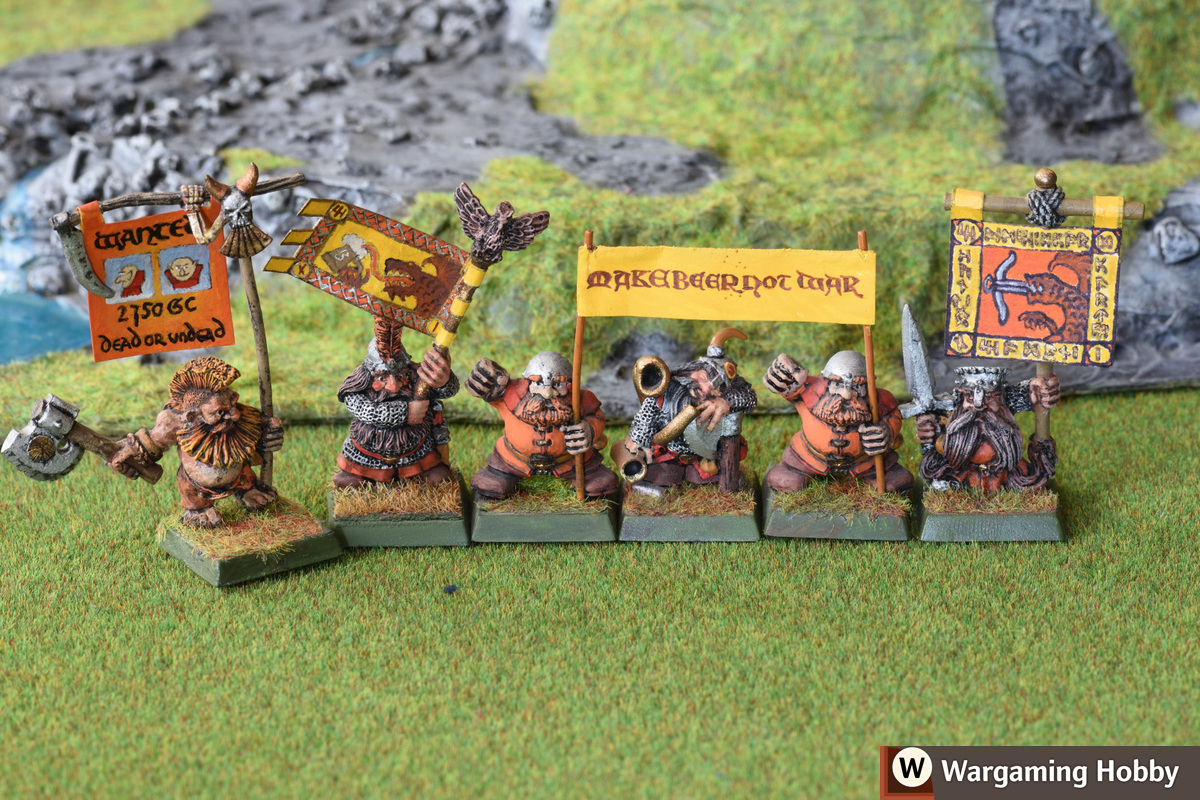Freehand painting if you cannot paint
How to make a freehand painting on a model, even if you are not a good painter. I will share with you some secrets, of which artists often take advantage, but you don't notice that in a finished painting.
Note: this article is an expanded video presentation of my article about the topic.
The canvas
Before I start painting, I need my canvas sorted out. I begin by creating a banner template from a normal copy paper. This allows me to fiddle with it in an iterative process, to make sure I get what I want in terms of size and proportions.
The banner will have two sides. It will be more resilient if I glue back and front of it painted separately.
Once I'm happy with the result, I measure the template and recreate it digitally. As it consists of rectangles only, it is quite easy in any software, that allows you to operate on centimetres or inches, not just pixels.
Why I am doing this step? First of all it will be easier for me to print the template, rather than copy it with a pencil.
But there is also another reason. There is an easy alternative to freehand painting. You can simply copy a design on the banner in your computer, print it and call it a day!
If you prefer, you can use a line-art design and colour it later with real paints, like in a childrens' colouring book!
I did this for some of these dwarf banners as well to a pretty neat effect. Some of the designs on the banners were printed and then coloured.

Secret No. 1: design is harder that painting
OK. Enough for this easy road, let's finally get to doing a fully free painting.
Now for the first great reveal of a forbidden secret: inventing what to paint is much harder, than actual painting. A lot of great artists just sketched their ideas and other painters in their workshop filled it with paints.
The likes of Albrecht Dürer and Johannes Vermeer were even known to use mechanical and optical devices to speed up the boring parts of painting.
So if you don't feel like an artist, feel free to use a readily available design. Drawings in this book were meant to be used in such a way, so there is nothing naughty about copying them.
I also often use objects and drawings that are more than 100 years old, so there are no problems with copyright. Old encyclopaedias and places like the British Museum in London, or the Pergamonmuseum in Berlin are great sources of elements for your collage. I have also benefited a lot from taking pictures of various architectural details during my voyages.
Secret No. 2: preparatory drawing
Now for the secret number 2: you are not supposed to paint freehand completely free, just prancing around the canvas, like a special snowflake unicorn with a rainbow up her… tail.
Most great artists did a preparatory drawing of their paintings first. Often correcting mistakes or even repainting some parts. X-rays showed that the "Lady with an Ermine" by Leonardo originally held a slightly different animal, that was later repainted by da Vinci himself. Probably because the original creature looked too obviously like a penis. You can Google it.
Anyway: feel free to fiddle with your preparatory drawing. Start by general placement of objects to get the proportions right and then work step by step on details.
You can use a ruler to get the straight lines straight. No shame in that.
When I am happy with the pencil draft, I fix it by drawing over it with a marker.
Remember you will be able to easily erase all pencilwork, when you are done drawing.
When I am making a preparatory drawing on a surface other than paper, I use a grey paint in place of the pencil. It is easy to paint over, like in the case of this Space Marine banner.
Secret No. 3: freehand painting to the level you need, is the same as painting a model
You first block the colour areas with a basic paint.
And then you go to shading and highlighting. It does not need to be as prominent as on a model. Several touches of lighter and darker paint will do.
Remember again, that you can paint over your mistakes. You don't have to get it right with one go.

 Share the link
Share the link
